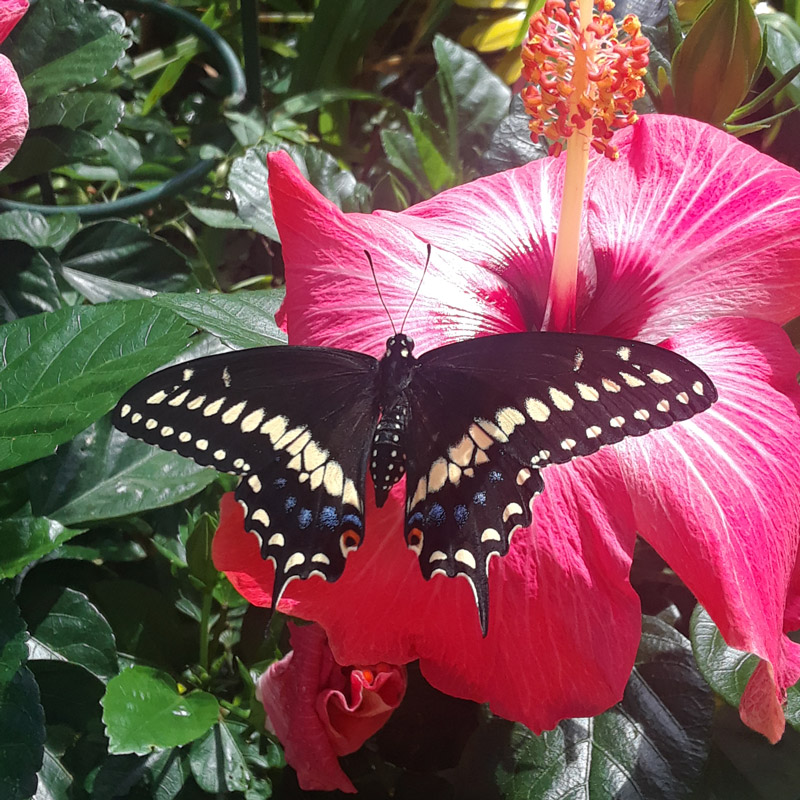Conservation Pledge
(The National Garden Club)
We pledge to protect and conserve our natural resources of Planet Earth and to promote education
so that we may become caretakers (stewards) of our air, water, forest, land and wildlife.
GCNJ’s History of Civic Activism and Advocacy
The GCNJ has a long history of civic activism and advocacy …
1925 – Clubs banded together to fight the destructive pest, the Tent Caterpillar
1929 – Endorsed a Bill in the State Assembly to restrict billboards along highways
1935 – Worked to get Goldfinch as the New Jersey State Bird
1948 – Helped establish Greenbrook Sanctuary overlooking the Palisades
1950 – Worked to get Red Oak Tree as the New Jersey State Tree
1955 – Aided in the preservation of Mettler’s Woods, a 136 acre tract
1960 – Fought a proposed jetport and preserved The Great Swamp for wildlife
1964 – Funded Scholarships to the New Jersey School of Conservation
1971 – Held first Environmental Conference at Rutgers University
1986 – Members protest plans to commercially develop Rutgers Gardens
1992 – Members protest expansion of Atlantic City Airport to protect Pine Barrens
2009 – Declared April as GCNJ Environmental Awareness Month.
2016 – Worked to get Black Swallowtail Butterfly as New Jersey State Butterfly

ALERTS:
Caven Point Bird Sanctuary at Liberty State Park –
Stop the Privatization and Development of NJ State Parks. Caven Point Peninsula is a bird sanctuary located in the Atlantic Flyover and considered an important stop over for thousands of birds during their long and arduous annual migration. Recently, there has been a proposal to develop Caven Point Sanctuary at Liberty State Park in Jersey City for the expansion of Liberty National Golf Club, a private members-only golf course. The recent NJ Stopgap Budget (on page 95) permits private ventures at any State Park by soliciting bids from interested developers to help pay for budget shortfalls. The possibility of privatization of NJ parkland is worrisome. Land preservation and stewardship of our open spaces are critical to the health and wellbeing of New Jersey’s residents and the natural environment.
Click Here for additional information.
Spotted Lanternfly –
The Spotted Lanternfly is an invasive pest found in New Jersey and neighboring states. This destructive pest was originally found in China, India, Japan, South Korea, and Vietnam. Since being introduced to our area in 2014, it has rapidly spread. The young nymphs feed on a wide range of plant species causing serious concern over damage to our country’s grape, orchard and logging industries. The pest has been detected on many host plants, including apple, plum, cherry, peach, nectarine, apricot, almond, grapes, pine, oak, walnut, poplar, and tree of heaven. Be alert to help stop the spread.
Click Here for additional information.
Oak Leaf Scorch –
Our NJ State Tree, the Red Oak (Quercus rubra) is in danger. Many specimens of the Red Oak, are infected and dying from Bacterial Leaf Scorch aka Xylella fastidiosia. GCNJ asked Rutgers Gardens’ Bruce Crawford for guidance on the issue. His advice is “aside from keeping the plants healthy (no parking cars under tree canopies [extreme weight around the tree compacts the roots], proper pruning, and adequate irrigation), the only course of action at present is an injection of antibiotics done in late May. The injection needs to be done each year so it prevents the xylem from getting ‘plugged’ and allows water to pass on to the leaves and photosynthesis to continue. To date, some of the other oak species have been diagnosed with Bacterial Leaf Scorch, as have Lindens and Sycamores, but none are as susceptible (to my knowledge) as Quercus rubra. When thinking shade trees, you are also thinking in blocks of 30 year minimums, since that is how long it takes for a seedling to mature to large shade tree proportion. If the climate continues to warm some trees, such as Sugar Maple, will not thrive in NJ as they do currently. All stuff to consider for the future!”
Click Here for additional information.
Plant America with Trees … NGC Initiative –
The GCNJ Environmental Committee began promoting the Importance of Trees in 2019 through a series of articles printed in the NewsLeaf. To date, GCNJ has encouraged members to plant native trees in their communities and included tips for successful growth. This initiative is also being promoted by The National Garden Club through their 2020 program known as Plant America with Trees.
Click Here for additional Information from NGC.
Pollinators … Ban on Toxic Neonicotinoids –
These types of harmful insecticides are systemic chemicals which are absorbed by the entire plant and dispersed through it’s tissue, including the pollen and nectar. This makes consuming the toxic residue deadly to pollinators during pollination. Currently, the New Jersey bill as written does not include agricultural crops. However, the ban would impact the landscape industry which is the largest abuser of neonicotinoid overuse in the state. Avoid pesticides in your garden.
Click Here for additional information.
ADVOCACY:
Finding Your NJ State Legislator –
Each Municipality in NJ is located in a voting District which is represented by both a State Senator and Assemblyperson. It is important that these Legislators know how their Constituents (you) feel about important environmental issues. This information is taken into consideration when they vote on pending legislation.
Click Here for additional information.
Reaching Out to Legislators –
Expressing your concern or interest in a cause is considered Advocacy. Furthermore, it is your right to contact the government to express an opinion and you’re protected by the First Amendment of the Constitution. Making a phone call or sending a letter to your Legislator by email, fax or postal service are good ways to express your concern.
Click Here for additional information and tips.
Template of Sample Letter for Environmental Concerns –
It is important to stay informed on environmental issues and to use that knowledge when contacting your Legislators. A rough template of a sample letter is available to get you started.
Click Here for additional information.
POSITION PAPERS ON ENVIRONMENTAL CONCERNS:
- Clean Water
- Clean Air
- State Parks and Public Land
- Protecting Pollinators
- Native and Invasive Plants




